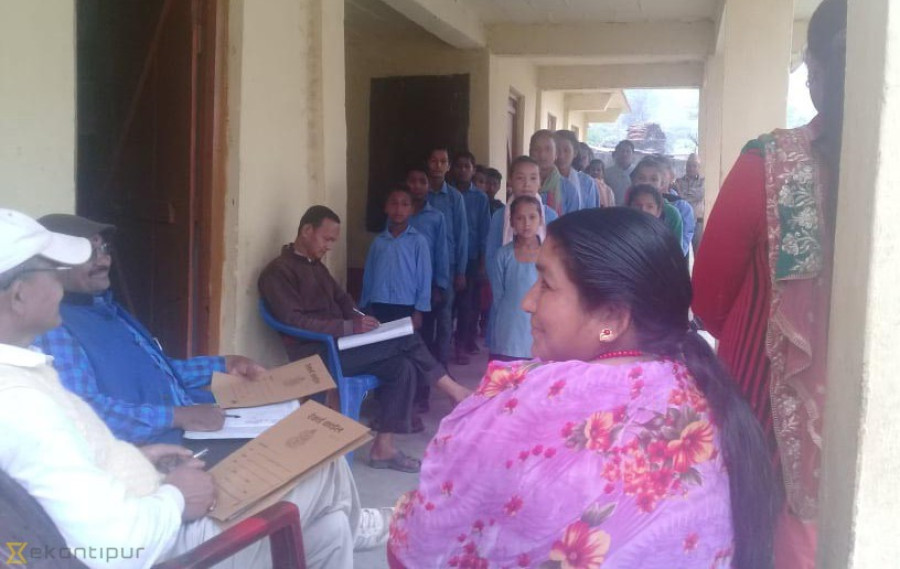National
Enrolment drive a ritual if poor families don’t get support, experts say
The government’s annual school enrolment campaign is more of a ritual and it lacks substance as, despite claims, the drive fails to bring all out-of-school children to the education system, experts and stakeholders say.
Binod Ghimire
The government’s annual school enrolment campaign is more of a ritual and it lacks substance as, despite claims, the drive fails to bring all out-of-school children to the education system, experts and stakeholders say.
The Ministry of Education last week started school enrolment campaign, aiming to bring all out-of-school children to the education system from the current academic session.
Through the two-week campaign the ministry expects that 91,005 children of school-going age, who are not in the school system, will get enrolled in the academic institutions. The ministry has directed respective schools and requested local governments to ensure not a single child is left behind. Officials at the ministry say the government expects hundred percent school enrolment from this academic session.
Education experts, however, harbour doubts that the type of campaign the government is running will be enough to bring all the children of school-going age to school.
The government had also run a similar school enrolment campaign with a lot of publicity last year. Prime Minister KP Sharma Oli launched the campaign from Mugu, taking guardianship of two children. Similarly, other ministers and top political leadership also took educational responsibilities of some children.
If the government record is anything to go by, the number of children, who never attended the school, stood at 345,000 last year. And 254,000 of them were enrolled under the campaign.
"We are planning to bring all the children of school-going age to the school system to take net enrolment ratio to 100 percent," said Deepak Sharma, spokesperson at Centre for Education and Human Resource Development under the Education Ministry.
But the children from extremely marginalised and poor communities and those who are physically challenged are left out of the school system at present, the government needs to come up with a special package if it really wants to see them in school, experts say.
"The enrolment campaign has become a ritual. Calling children to school from extremely marginalised community without opportunity costs to their parents will never succeed," Binay Kusiyat, a professor at Tribhuvan University who has conducted a number of research on school education, told the Post. "I even doubt thousands of those who were claimed to have joined school last year are in classrooms today."
A group of education experts had in the past suggested that the government incorporate the provision of opportunity costs in the Free and Compulsory Education Act that was endorsed by the federal parliament last year. However, the suggestions were never implemented.
“As the parents from poorest of the poor communities are somehow using their children in economic activities, the government needs to compensate the loss the families suffer when they send their children to the school,” said Kusiyat. “Along with free textbooks, stationeries and uniform, there should be some economic support for such families. It is impossible to attain 100 enrolment the way the campaigns are being run.”
Even officials at the Education Ministry agree that it will not be possible to bring all the children to school unless the enrolment campaign is linked with some kind of economic activities.
Bishnu Prasad Mishra, deputy spokesperson at the ministry, said there should be a provision of interest free loans, vocational training or other income generation opportunities for the extremely poor families who send their children to school.
The government in 2014 had announced everyone will be made literate within two years. However, that goal remains unattained in many districts.
Kusiyat said Oli and other ministers, who are providing financial support to families of the children they took the guardianship of, should ensure similar support to other needy families by introducing some kinds of provisions.
"If providing opportunity cost is not possible, there should at least be some economic incentives to such families," Mishra, the ministry official, told the Post.




 16.12°C Kathmandu
16.12°C Kathmandu














